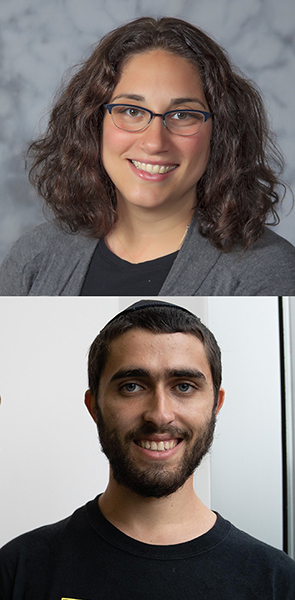Using Human Problem-Solving To Inspire Better AI Scheduling
Megan HarrisWednesday, September 8, 2021Print this page.

Researchers in Carnegie Mellon University's School of Computer Science are studying how humans organize their days and how they react to changes in their schedules to help build better artificial intelligence tools.
Students have teamed up with Stephanie Rosenthal, an assistant teaching professor in the Computer Science Department, to work on the project through Summer Undergraduate Research Fellowship grants. This past summer, Elchanan Haas, a junior studying computer science, built on previous work to create problem-solving strategies that mimic and ultimately improve on human decision-making.
"This could someday be adapted in a number of ways," Haas said. "Delivery companies are using algorithms to schedule their car fleets, but this complex mixture — pickups, deliveries, appointments, tasks — there's nothing on the robotics market today able to consider and efficiently schedule all of those activities at the same time."
Rosenthal cautioned that the most efficient schedule constructed by AI might not be the best for a human to follow. That is why the next step in the research is to study how humans respond to rescheduling.
"Just because a computer can find a better, more efficient itinerary for you, should it? Does shaving some time off really make my day better if I'm confused about where I'm going?" Rosenthal said. "But we're not asking for those opinions just yet."
Read more about Rosenthal's research and the team of students working on it in this story on the CMU News website.
Aaron Aupperlee | 412-268-9068 | aaupperlee@cmu.edu
